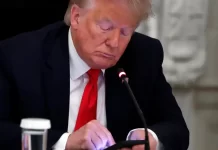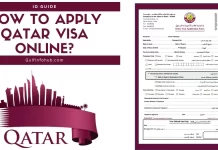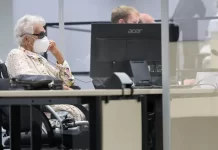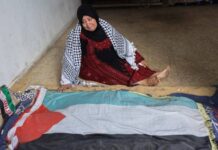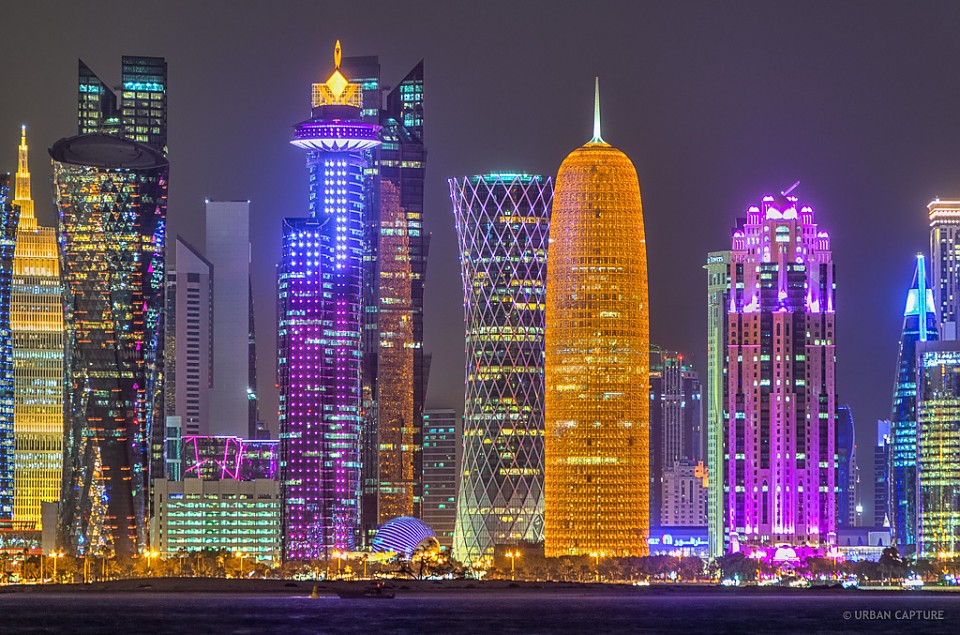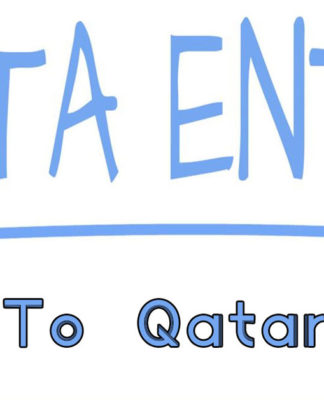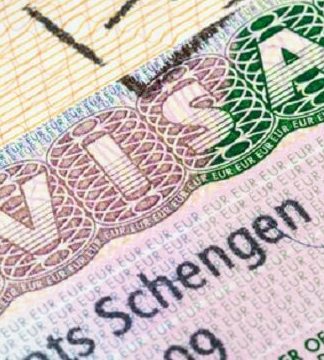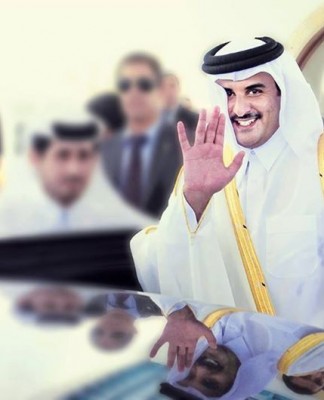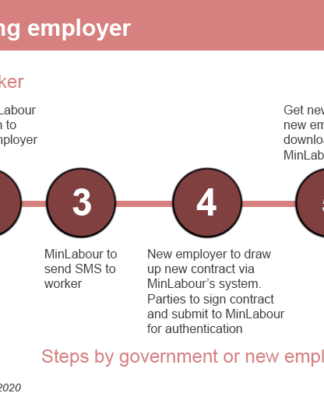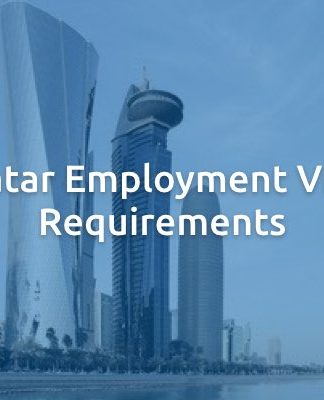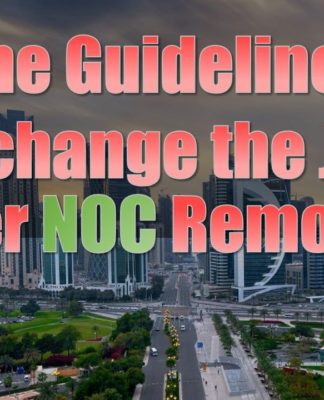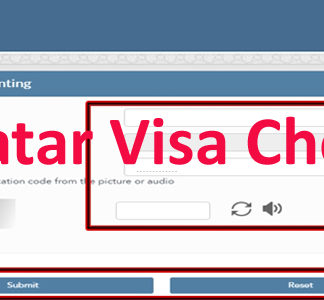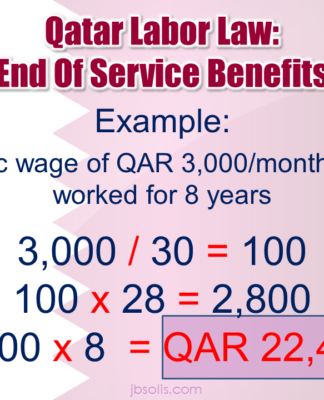This helpful guide serves as an introduction to Qatar and delves into the ex-pat way of life, culture, downtime, and work environment in this affluent Arab state.
Qatar may be small, but it sure packs a punch, and with 85% of its population being foreign, most ex-pats will feel right at home. This guide provides the following information:
 Written by Mark Lazell
Written by Mark LazellThis helpful guide serves as an introduction to Qatar and delves into the expat way of life, culture, downtime, and work environment in this affluent Arab state.
Qatar may be small, but it sure packs a punch, and with 85% of its population being foreign, most ex-pats will feel right at home. This guide provides the following information:
Expat life in Qatar isn’t all tax-free salaries, 4×4 desert bashing, and fancy brunches – but it’s not far off. Outside the workplace, there is plenty to do and see, and the capital city, Doha – little more than a town four decades ago – has that big city buzz.
On the surface, Qatar is changing at a breakneck pace. Its people are officially the world’s richest, its economy is powered by income from the world’s third-largest natural gas reserves, and its wealth has paid for huge infrastructure projects. This includes a gleaming new international airport (home of Qatar Airways, one of the world’s top airlines), a new metro system (the first line of which opened in 2019), and work associated with the 2022 FIFA World Cup.

There are world-class museums (including the stunning new National Museum), a vibrant arts scene, and Michelin-starred restaurants. All this in an area just a tenth the size of New York state. What’s not to like?
Living in Qatar
Qatar is a finger-shaped peninsula jutting into the Arabian Gulf. According to the World Bank, its population was 2.78 million in 2018. Some 85% of the population is an overseas foreign worker from more than 100 countries, making Qatar the quintessential melting pot.
Expat life in Qatar can be comfortable. There is a brand spanking new public transport system, smooth highways, and a great airport with flights to all corners of the globe. There is also housing to suit any budget, every international brand your heart (and wallet) desires, and a tax-free salary to top it all.

Qatar might have once been famous for its oil, but gas now supercharges the economy. The country possesses 15% of the world’s natural gas and shares the world’s largest field with Iran. At Ras Laffan, north of Doha, the world’s biggest liquefied natural gas (LNG) exports leave for global markets. Qatar’s resource wealth has bankrolled its regional geopolitical influence; in 2022, it will be the first Middle Eastern country to host the FIFA World Cup.
Doha’s population alone has grown five-fold in the last 15 years. Despite this rapid development, however, Qatari society remains conservative, and Islam (the religion of about two-thirds of the population) is integral to daily life.
The country is becoming more urban, too, with some 90% of the whole population working and living in the capital. Outside Doha, the barren peninsula is a mixture of rocky deserts, sand dunes, and more than 530km acres of coastline. Only 1% of the land is cultivable, therefore the vast majority of food is imported.
Geography of Qatar
Covering an area of approximately 11,437 square kilometers, Qatar is one of the smallest Arab states. It has just one land border with Saudi Arabia, but this is not currently open. Arabic is the official language, but English is the lingua franca of the ex-pat community.

The peninsula is surrounded on three sides by the Arabian Gulf. The terrain is mostly flat, barren desert covered with loose sand and gravel, and a central limestone plateau. The highest point, Qurain Abu al Bawl, rises just 103 meters.
Administratively, Qatar comprises eight municipalities: Al Shamal, Al Khor, Al Shahaniya, Umm Salal, Al Daayen, Ad Dawhah (Doha), Al Rayyan, and Al Wakrah.
An overview of Doha
Qatar may be a one-city state, but Doha is no one-horse town. It is the very definition of nouveau riche – glitzy high rises, swanky hotels, posh restaurants, a brand new metro system, and flourishing arts and culture. And this has all been created from scratch in about 15 years. As Qatar’s only metropolis, this is where the vast majority of expats (skilled and unskilled) live and work.
Doha spectacular growth has been fuelled by Qatar’s natural gas boom. In 2010, the city’s population was less than 800,000. However, in 2019, it has swelled to 1.85 million, largely due to the legions of foreign workers assigned to huge infrastructure projects. In this time, the city has begun to resemble one large building site as work on the 2022 World Cup infrastructure (seven stadia are being built in and around the city), and the Metro system (which when complete will have three lines and 40 stations) was fast-tracked.
Life in Doha for expats revolves around work and downtime. The latter might include membership at an expat social club, dining out, or exploring the desert or the Gulf’s azure waters.
Doha offers all this without burning a hole in your expat pocket. In fact, it’s ranked low, at 115th globally, in the 2018 Mercer Cost of Living Index.
Qatar: facts and figures
- Qatar will be the first Arab country to host the FIFA World Cup in 2022;
- The estimated total cost of the World Cup to Qatar will be $220 billion;
- The population of Doha has jumped five-fold from 339,000 in 2004 to 1.85 million now;
- There are twice as many men as women living in the country;
- Qatar shares the world’s largest gas field with Iran. The offshore North Field holds some 35,000 cubic km of recoverable reserves; that’s almost six times that of the second-largest field in Russia;
- Qatar is the world’s richest country per capita, at $130,000;
- The country is currently grappling with a political and trade embargo imposed by Saudi Arabia, Bahrain, Egypt, and the United Arab Emirates;
- The first of three lines of the multi-billion-dollar Doha Metro opened to passengers on 8 May, 2019;
- The country was briefly part of the United Arab Emirates, shortly after it declared independence from the British in 1971;
- Qatar National Vision 2030 is a long-term development plan focusing on the economy, society, human development, and the environment.
Qatar: key historical dates
National Day in Qatar (also known as Founder’s Day) is celebrated annually on 18 December. This commemorates the country’s unification in 1878; the country declared independence from Britain on 3 September 1971. The current head of state, Amir Tamim bin Hamad Al Thani, assumed power on 25 June 2013, following his father’s abdication.
Economy and living standards in Qatar
With a gross domestic product of $192 billion in 2018, Qatar has the world’s 52nd largest economy. Often perceived as the epitome of extravagance, oil wealth, and government largesse, Qatar’s per capita GDP was, according to the International Monetary Fund (IMF), $130,000 in 2018. That’s by far the world’s highest – nobody in Qatar lives in poverty.
Natural gas sales and exports drive the economy. Qatar has the world’s third-largest natural gas reserves (around 15% of the global total). It shares by far the world’s largest gas field (the offshore North Field) with Iran. And it is the world’s leading exporter of liquefied natural gas (LNG). The country also produces around 600,000 barrels per day of oil. However, Doha unexpectedly resigned its 58-year membership of Opec on 1 January 2019.
The economic forecast
According to government data, the Qatari economy grew at 1.4% year-on-year in 2018, down from 1.6% in 2017. The central bank predicts growth to accelerate over the next two years on expectations of stable oil prices and strong exports. The central bank has also said that real GDP was likely to grow at 2.8% on average between 2018 and 2020. It estimates that the budget surplus will fall to QR4.35 billion ($1.20 billion) in 2019. This compares to a QR15.1 billion surplus in 2018, thanks to a 15% rise in spending on major projects.
In its 2019 budget, Qatar announced that state spending would rise only 1.7% from the 2018 budget to QR206.7 billion. Due to higher oil prices, the government expects 2019 revenues to surge by 20.5% year-on-year to QR211 billion. This will create the first surplus (of QR4.3 billion) in three years. The government also deferred a decision to impose VAT in 2019. The budget also sees project spending shrinking by 3.6% year-on-year to QR89.6 billion, and wage spending rising. Qatar’s 2019 budget assumes an average oil price of $55 per barrel (an increase from $45 in the 2018 budget).
A vision for the future
In 2017, Saudi Arabia, the UAE, Bahrain, and Egypt severed diplomatic relations with, and imposed a trade embargo on, Doha. In 2019, the Qatar Central Bank said foreign capital inflows had returned, banking liquidity had improved, and official reserves had returned to pre-embargo levels.
The country is currently implementing National Vision 2030, a reform program based on economic, social, human, and environmental pillars. The Qatari currency is the riyal (QR), which is pegged to the US dollar (QR1 equals US$0.27). Qatar is currently the world’s 28th-freest economy.
Qatar people and society
To say Qatar has undergone a population explosion in recent years would be a huge understatement. In fact, the number of residents has quadrupled in the last 19 years. This is mainly due to a massive influx of male foreign construction workers. Consequently, twice as many men as women live in the country, and only 15% of the population is Qatari.
Language and religion in Qatar
Islam is the dominant religion in Qatar. Two-thirds of the population is Muslim, followed by Hindu (14% of the population) and Christian (also 14%); the other main religions. Arabic is the national language, although English is widely spoken in business. With more than 100 nationalities living in Qatar, many languages are heard on Doha’s streets and in its malls.
Qatar may be modernizing rapidly, but society remains conservative. As a rule, expats living in Qatar should respect local traditions and conform to social norms such as dressing conservatively. Above all, they should respect the Islamic faith. It is important to know that criticism of the royal family is taboo, as is public criticism of Qatari politics.
Social structure in Qatar
Despite being increasingly urbanized, society is arranged along tribal lines, headed by the Al Thani, the ruling family. Wasta – essentially the use of influence to get things done – remains a feature of Qatari culture. Qatar launched National Vision 2030 in 2008, and Social Development is one of the four pillars of the plan. Social programs are being implemented to bolster communities, promote sports, foster cultural heritage, and encourage family cohesion. The country currently ranks 37th on the UN Human Development Index.
It is highly unusual for an expat to obtain Qatari citizenship. In 2018, however, a law was passed enabling eligible long-term expats to obtain permanent residence. As an expat, it pays to understand Qatari culture and the way of life. The locals will likely appreciate any attempts to speak Arabic.
Qatar lifestyle and culture
Qatar offers an enviable quality of life for expats., and while Doha ranks 110th on the Mercer quality of life index, the lifestyle is improving. The gradual completion of major projects (after years of upheaval) in Doha, and the prospect of the 2022 FIFA World Cup coming to town, make for an exciting few years ahead.
Expats have a range of high-class accommodation to choose from. Some opt for The Pearl Qatar, a prime residential and leisure destination north of the capital.
While Qatar may be a desert, it is certainly not lacking in culture. The Museum of Islamic Art is arguably Doha’s piece de resistance. Designed by Chinese architect I. M. Pei, the Museum – which is slap bang on the city’s waterfront – is stunning. Meanwhile, Katara Cultural Village, located just north of Doha, hosts art exhibitions, films, operas, orchestras, and festivals throughout the year. And the Al Zubarah fort and archaeological site, situated on the peninsula’s northwest, is a UNESCO World Heritage Site.
Qatar also features prominently on the international sporting calendar. This includes high-profile ranking tournaments for tennis, golf, motorsport and, of course, the 2022 football showpiece. There is rarely a dull moment in Qatar as a result.
Food and drink in Qatar
Swanky brunches, Michelin-starred restaurants, glam cocktail bars – Doha has it all (if you have deep pockets). On the other hand, good old-fashioned Qatari cuisine needn’t break the bank. Machboos (which is a bit like biryani) is a Gulf classic consisting of rice, meat/seafood, and veg. Shawarmas are a staple, and there are hundreds of cheap Indian restaurants scattered throughout the city.
For upmarket fayre, try Austrian celebrity chef Wolfgang Puck’s Cut, Nobu Doha for celebrity Japanese, or Saffron Lounge by Michelin-starred Indian chef, Vineet Bhatia. Discover more great restaurants in Doha.

People, including families, tend to eat late in Qatar. It isn’t unusual to sit down to a meal at 10 pm on a weekday, and many cafes stay open until 2 am (or even later on weekends).
It is worth noting that only five-star hotels are licensed to serve alcoholic drinks in Qatar; although non-Muslim expats can obtain a permit to buy alcohol. As a result, there is a huge range of non-alcoholic drinks in town. Try the rich, milky (and very cheap) karak chai, or the various fresh fruit juices and mocktails on offer. However, if you do crave something stronger, check out these amazing rooftop bars in Doha which offer sensational views of the city.
Politics, government, and administration in Qatar
Qatar is a constitutional monarchy headed by Amir Shaikh Tamim bin Hamad Al Thani, who is also head of government. Shaikh Tamim assumed power on 25 June 2013, following his father’s abdication. The country is run by consultation and consensus, and every citizen has the right to make personal appeals to the Amir. Political parties are banned and instead, a consultative assembly, known as the Shura Council, has 35 appointed members. Qatar comprises eight municipalities, each of which has its own administrative responsibility to its districts.
Qatar’s foreign policy often bucks regional trends, leading some commentators to describe it as a maverick. The country punches above its weight on the geopolitical stage, too – occasionally at the expense of relations with its neighbors. It has, in the past, reportedly armed Libyan opposition groups; rebel groups in the Syrian civil war, and allegedly has close ties to the Muslim Brotherhood. The government-owned Al Jazeera TV network is often accused (by other countries in the region) of biased reporting.
In mid-2017, Saudi Arabia, Bahrain, Egypt, and the UAE severed diplomatic relations with Qatar over the latter’s alleged terrorism funding. As a result, it is not possible to fly to, or from, these four countries from Doha. This also included a trade embargo, meaning that the country’s only land border (with Saudi Arabia) is currently closed, which limits imports.
Al Udeid Air Base is a military facility that the Qatar, US, and UK air forces use. It also hosts the forward headquarters of the US Central Command.
Rights and freedoms in Qatar
Qatar ranks 105th globally in the Fraser Institute’s Human Freedom Index and it has the world’s 128th freest press. The Freedom in the World 2020 report gives Qatar a score of 25 out of 100; with 100 being the freest.
Homosexuality is against the law in Qatar and is punishable by up to seven years in prison and a fine. The government does not recognize same-sex marriage or civil partnerships.
Crime and policing in Qatar
Qatar is statistically one of the safest places in the world. Serious crime is rare, and as an expat, it is highly unlikely that you will be a victim of one. According to the country’s interior ministry, the total number of crimes committed in 2018 fell by 2.4% year-on-year. There were 0.4 murders per 100,000 people, which was 95% lower than the global average.
As an expat, your most likely interaction with the police will be on the roads. Qatar’s road safety – which once made for painful reading – is improving in leaps and bounds. In 2018, the number of deaths fell to 4.9 per 100,000 people, from 5.4 in 2017.
Corruption in Qatar is also low, although patronage networks and favoritism are institutionalized, especially in public procurement. Using influential middlemen – a practice known as wasta – is prevalent in Qatari business culture.
The Qatari justice system is a mix of civil and Sharia (Islamic) law.
Health, welfare, and social security in Qatar
Expats cannot access the Qatari social welfare system. Doha has excellent hospitals, medical, and healthcare facilities. Most expats visit a private hospital or clinic for treatment. Private health insurance is compulsory for expats, and is typically provided by the employer. Expats either have health insurance from their employers or must buy private insurance. The following is a list of international health insurance companies operating in Qatar:

Medication is widely available at pharmacies in Doha and across the country. The most common health hazard is heat exhaustion. Life expectancy in Qatar is 77.3 for men and 79.9 for women. Qatar is ranked as the world’s 29th happiest country.
Education in Qatar
Children of expats in Qatar cannot access state education. However, Doha, in particular, has a wide range of international schools catering to primary and secondary school-age students. Check out the Doha British School, the German School Doha, Institut Francais Qatar, and Al Khor International School.
Work and business in Qatar
Generally speaking, expats come to Qatar for work, rather than the lifestyle alone. Salaries for skilled, qualified positions are good by global standards, and there is no income tax. Although lower oil prices and regional geopolitics have impacted the economy, there are still good job prospects. Few expats venture into self-employment – instead, most work in gas, oil, or construction. There is a concerted push (especially in government organizations) to employ Qatari citizens in public and private sector work. The unemployment rate in Qatar was 0.6% in 2018, according to the Planning and Statistics Authority.
While salaries in Qatar are similar to those in western countries, the lack of income tax means net income is higher. In addition to salary, contract workers receive an ‘indemnity’ at the end of their contract period. An indemnity may amount to 15 days’ basic salary for each of the first three years of employment. This rises to a full month’s salary for every year completed thereafter.
Qatar’s sponsorship system has come under scrutiny in light of the 2022 World Cup, and the alleged abuse of workers. In law, a worker’s sponsor can cancel a worker’s residence permit, prevent the employee from moving to another employer, and place a travel ban on the employee to prevent them from leaving the country. Qatar has pledged to reform this kifala system, including removing the need for exit visas and introducing a minimum wage.
Qatar’s multi-cultural population is reflected in a diverse work environment. Many see the opportunity to work with people from around the world as an indirect benefit of working in Qatar.
Environment and climate in Qatar
Contrary to popular belief, Qatar does have seasons. For six months of the year, the climate is pleasant and conducive to outdoor recreation. In summer (May to September), daytime temperatures can hit 50 degrees centigrade, and high humidity is normal. Winters are typically cool, with clear blue skies. What little rain does fall on Qatar tends to fall in winter.
Although it is a parched land vulnerable to human development, Qatar is making efforts to preserve its environment. One of the developmental pillars within National Vision 2030 is Environment. The government has established five protected areas that account for almost a fifth of Qatar’s total land area. The UNESCO Al Reem Biosphere Reserve, covering about a tenth of the country, is home to gazelles and Arabian oryx. There are also three marine protected areas.
Great places to visit in Qatar
Museum of Islamic Art
If there is one thing you should do in Doha, it is to visit this homage to Islamic art and culture. As if the priceless exhibits and artifacts spanning 1,400 years inside aren’t enough, the waterfront location overlooking the bay towards downtown Doha is picture-perfect. Take a dhow (traditional wooden boat) taxi across the bay into town from the jetty once you are done.

Singing Sand Dunes
So they don’t exactly break out into song, but these magnificent dunes south of Doha really do make a noise – of sorts. Ask around for tips on how to get them to knock out a tune. Go at sunset for the Lawrence of Arabia vibe – just don’t get stuck in the sand in your car, or it will be you making a song and dance.
Souq Waqif
Big on atmosphere (if not on actual history), this Doha renovation project is the place for traditional garments, spices, handicrafts, and souvenirs. The architecture is traditional in style. The best time to visit is in the evening when the restaurants and shisha lounges come alive.
Al Zubarah
Escape the city and take a glimpse at Qatar’s past. This UNESCO World Heritage Site features a restored 18th-century fort plus surrounding archaeological works. The town was once one of the Gulf’s most prosperous (pre-oil of course), and was an important trading post. It’s a little over an hour’s drive from Doha.
Imam Abdul Wahhab Mosque (State Grand Mosque)
This is Qatar’s largest mosque with 90 domes and 18 entrances. It was built in 2013 and was named after the 18th-century Islamic theologian. It can accommodate 30,000 people.
Public holidays in Qatar
- New Year’s Day: 1 January
- National Sports Day: Second Tuesday in February
- Eid Al Fitr: 23-26 May 2020 (dates confirmed by moon sighting)
- Eid Al Adha: 30 July (date confirmed by moon sighting)
- National Day: 18 December
Qatar: myth-busting
The old (and rather worn) joke is that you shouldn’t light a match in Qatar given its vast underground (and, we assume, highly flammable) gas reservoirs. To date, we can confirm that nobody has (yet) set the country ablaze in this way.
Useful resources
Joining a social or sports club is a great way to meet people and find your way in the Qatar expat community. Here are some groups you might want to join:
There are a number of other expat-orientated Facebook groups that offer information on life in the country and details of gatherings and events.






